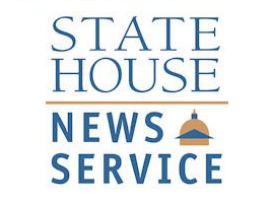Health Care Spending Surge Comes At “Time Of Disruption” - The State House News Service

DATE: March 13, 2023
CHIA Reports Per Capita Expenditure Neared $10,000 In 2021
.....A new report estimates that per capita health care expenditures in Massachusetts shot up 9 percent in 2021 after having dropped 2.3 percent in 2020, giving elected officials and policymakers fresh data two days ahead of hearing that could consider how the health costs oversight system put in place by a 2012 cost control law can account for the myriad changes brought on or exacerbated by the pandemic.
The Center for Health Information and Analysis, created under that 2012 law, released its annual report on Monday examining health care spending trends in 2021. The independent agency estimated total health care spending in Massachusetts at $67.9 billion in 2021, and a per capita health care expenditure of $9,715 per resident.
Use of the health care system and spending on it were held down in 2020 when routine care and scheduled procedures were put on hold to focus on reacting to the onset of the pandemic. As society and the economy inched back open in 2021, people sought more care and the intensity of the services needed was up. CHIA said that led to faster spending growth and strain on capacity across the health care system.
"Adding to financial pressures, 2021 saw the expiration of federal provider relief funds, and payers recorded losses due to claims costs exceeding premium revenues. At the same time, Massachusetts residents continued to face affordability challenges accessing needed care," CHIA wrote in its report.
Massachusetts considers itself a model for health care reform, and since a 2006 law signed by Gov. Mitt Romney, the state has required most residents to obtain at least a minimum level of insurance coverage or pay a tax penalty.
A 2022 survey found that nearly 90 percent of Bay Staters are satisfied with the quality of care, their own health plan and the ease of access to care, but costs remain a significant issue and regular barrier to actually seeking care.
Sixty-three percent said the cost of co-pays and bills have been a problem for their family's finances, ranking third behind only the costs of groceries and gas in the survey conducted by Beacon Research. Prescription drug prices and monthly health insurance premiums have each been problematic for 57 percent of people. And 42 percent said that they at least occasionally put off seeing a doctor, getting a test or having a procedure because of the cost.
CHIA Executive Director Lauren Peters said the report released ahead of Wednesday's Joint Committee on Health Care Financing and Health Policy Commission hearing provides a snapshot of "a time of disruption and evolving challenges for patients, consumers and the health care system at large."
"The unprecedented impact of COVID-19 is evidenced by the reversal of many historical trends related to health care spending and utilization in 2020 and a rebounding effect in 2021," Peters said. Because of "the anomalous nature of this period," the report that CHIA released Monday focused on the three-year period from 2019 through 2021 to "provide a more accurate and contextualized picture of the health care system in the Commonwealth," Peters said.
CHIA said that per resident health care expenditures increased at an annualized rate of 3.2 percent from 2019 through 2021 with increases in all service categories.
Pharmacy spending outpaced all other categories though, rising 9.6 percent from $10.6 billion in 2019 to $12.7 billion in 2021 before accounting for prescription drug rebates. In 2021 alone, gross prescription drug expenditures grew 11.1 percent.
Rebates reduced pharmacy spending by $3.1 billion in 2021, to $9.7 billion. Prescription drug rebates are estimated to have grown from $2.3 billion in 2019 to $3.1 billion over the last three years. After those rebates, spending for prescription drugs increased at an annualized rate of 7.5 percent from 2019 to 2021, CHIA said.
Between 2019 and 2021, premiums climbed at an annualized rate of 4.7 percent and claims covered by payers and employers increased at a rate of 5.7 percent, surpassing growth in wages and salaries (3.6 percent) and regional inflation (2.2 percent), CHIA said.
Member cost-sharing among private health plans rose 16.9 percent in 2021 to $58 per member per month. Enrollment in high deductible health plans, under which patients pay more out of pocket before insurance kicks in, grew by 4.1 percent and now accounts for 42.7 percent of enrollments in the private market, the report said.
The CHIA report found that overall acute hospital profitability, measured by the median total margin, was 5.2 percent in hospital fiscal year 2021 -- up 2.6 percentage points on the year. The statewide median operating margin was 1.1 percent, a decrease of 0.2 percentage points, and the median non-operating margin was 3 percent, up 2.5 percentage points. Hospitals counted $386 million in federal and state relief funding in their operating revenue in HFY 2021 compared to $2.1 billion in HFY 2020, CHIA said.
Also Monday, the Massachusetts Health & Hospital Association said that its own recent survey found that hospitals spent $1.3 billion more for temporary staffing in fiscal year 2022 ($1.52 billion) than they did pre-pandemic in fiscal 2019 ($204 million). Seventy-seven percent of the spending was on temporary nurses.
Well short of the number of workers needed, hospitals are also offering big singing and retention bonuses, and have increased average hourly wages for in-house staff from 13 percent to 20 percent, MHA said.
"The healthcare workforce market in Massachusetts and around the U.S. has been upended and it is unclear where the change is taking us," MHA President and CEO Steve Walsh said. "The traveler agencies and temporary-worker trend has introduced a highly volatile variable in the budgeting and forecasting models hospitals use to remain financially stable and accessible to patients. Any state effort to analyze and constrain healthcare cost growth must recognize this dramatic workforce shift now occurring. This is a trend that demands our collective policy focus."
Massachusetts Association of Health Plans President and CEO Lora Pellegrini said that insurers took financial losses in 2021 because premium revenue could not keep pace with claims costs as people again sought care in-person and expanded coverage requirements stayed in place.
She specifically pointed to prescription drug spending as "a significant and ongoing challenge to containing health care costs" and lamented that the area is "absent from accountability to the state's cost growth benchmark."
"As health insurance premiums reflect the cost of care, it is critical that the state take action to address these rising health care costs. In conjunction with a strong benchmark, we urge the state to take steps to hold all entities accountable for cost growth, enhancing competition, and correcting market dysfunction," Pellegrini said.
Although the Legislature approved some major reforms including a landmark mental health access bill last session, the governor, House and Senate each prioritized a different aspect of the health care world, leaving numerous loose ends that lawmakers could elect to pick back up between now and July 2024.
The House last session approved legislation that would update the regulatory process for large health care providers trying to expand into markets covered by smaller, financially vulnerable community hospitals. In part, the House leadership priority bill would have allowed the HPC to examine not just merger and acquisition costs and impacts but also probe the market impacts of hospital expansions.
The Senate never took it up for a debate or a vote.
Meanwhile, the House never took up a Senate-approved bill that would cap out-of-pocket insulin spending at $25 per month, require pharmaceutical companies to notify the state before significant price increases or rolling out new drugs, and subject drug manufacturers and pharmacy benefit managers to both the HPC's annual cost trend hearings and to examination by CHIA.
The HPC itself has been vocal about its desire to see lawmakers ramp up its regulatory might, subject medical industry power players to additional scrutiny and limitations, and lessen the burden residents face from health insurance premiums and cost-sharing.
"Entering the new session, there is no real starting point for the next round of reform, but growing realization that action is necessary to prevent system closures and spiraling costs," the Massachusetts Taxpayers Foundation wrote in a memo earlier this year previewing topics likely up for debate on Beacon Hill this session.
Colin A. Young, State House News Service, March 13, 2023
[Michael P. Norton contributed to this report.]
